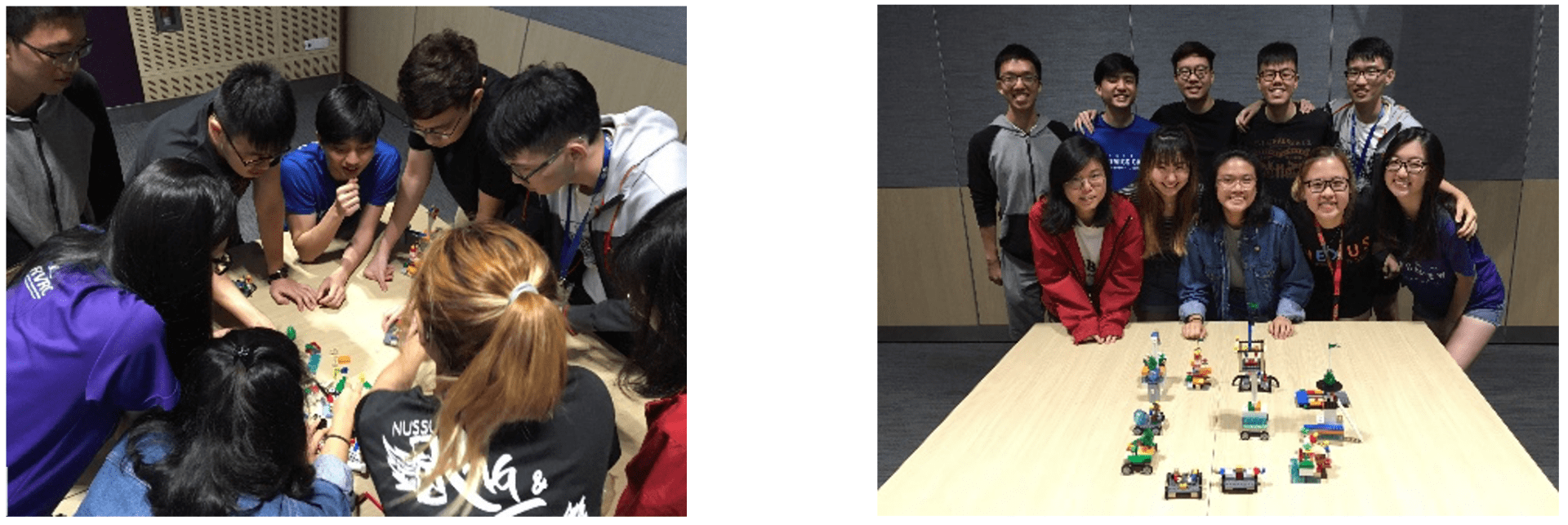Desmond NG
Ridge View Residential College (RVRC)
Desmond shares his experience in developing student leadership at Ridge View Residential College. Desmond was a presenter at the Teaching and Learning at Residential Colleges Colloquium of 2020 (TLRC 2020), held on 25 September 2020.

As a young Residential College (RC), Ridgeview Residential College (RVRC) does not have a formalised student leadership programme with the exception of training initiatives for Residential Assistants (RAs). However, the respective staff advisors for RVRC’s College Student Committee (CSC), its Freshmen Orientation Camp (FOC), and Interest Groups (IGs) provide guidance and mentor the student leaders.
When I was appointed the RC’s Associate Director of Student Life, I observed that our student leaders’ competencies were very varied. There was a need to design intentional student leadership learning and development initiatives.
Perceptions of Student Leadership
Perceptions of student leadership can vary widely. This can be illustrated using the pictures in Figure 1. What do you see in these three pictures?

Based on our perceptions we either see none, one or both. This is similar to how faculty and students perceive student leadership, which can be vastly different.
To investigate the extent of this variation, I asked both faculty and student leaders the question: “What is student leadership to you?” 27 responses from faculty and staff who attended the Teaching and Learning at Residential Colleges Colloquium (TLRC2020) are as illustrated in Figure 2. The most frequently mentioned words are “empowerment”, “influence”, “growth”, and “initiative”.

In a similar survey conducted a week before TLRC2020, 25 RVRC student leaders mentioned “responsibility”, “passion”, and “initiative” as essential attributes for student leadership (see Figure 3).

With the exception of the word “initiative”, it is interesting to observe that both faculty and students have different perceptions of leadership. This has allowed for many interpretations of student leadership.
Challenges of Developing Student Leadership
During the TLRC2020, colleagues discussed the challenges of developing student leadership in different contexts. These include:
- Lack of soft skills (e.g. communication, empathy)
- Lack of hard skills (e.g. planning, budgeting, event management)
- Conflict among students
Addressing the Challenges of Developing Student Leadership
Here are some ways that RVRC addressed these challenges.
- Intervention Strategy: Provide interventions to help student leaders improve on things they currently struggle with. The team building and conflict management workshops I conducted brought the student leaders closer with greater cooperation and success in the events that they planned (Figure 4). Periodic check-ins with student leaders also provide practical help and emotional support.

- Peer Mentorship: Create opportunities involving seniors. I encouraged College seniors who exhibited good leadership (e.g. good communication, good judgement, empathy etc.) to mentor newer leaders. For example, new FOC committee members can turn to these seniors for advice on programme design, budget management etc. (Figure 5).

- Student Leadership Programme: Introduce student leadership programmes that meaningfully foster leadership qualities. On this front, RVRC conducted a Bonding and Planning Retreat1 in 2019 to encourage greater autonomy and accountability among student leaders. In 2020, we conducted the Student Leader’s Symposium2 via Zoom where RVRC student leaders came together to share their collective vision for the RC, and to build upon each other’s efforts.
Moving forward, more can be done to develop student leaders through elective programmes focusing on the following aspects:
- Leadership styles
- Effective communication
- Conflict management
- Event management
- Peer mentoring
- Discussion and facilitation
Conclusion
According to Middleton (2013) as well as Peterson and Peterson (2012), leadership is not something innate, but rather a skill that can (and must) be learned, taught and nurtured over time. Schools and colleges are key in shaping the quality of leadership in society (Marcketti et al., 2013). If we believe that student leadership can help students successfully navigate their academic and Residential College experiences, it is important to promote increased engagement between staff and students to align perceptions of student leadership. Given the rising importance of leadership development in universities, we need to support our students in the development and appreciation of such skills so as to prepare them for a demanding, unpredictable and difficult world (Rosch & Caza, 2012).
If you are keen, please join me as I embark on this journey to identify, promote and develop student leadership skills through designing programmes to prepare our student leaders for the future.
 |
Desmond NG is Associate Director of Student Life in Ridge View Residential College (RVRC), where he teaches the module WR1401 “Workplace Readiness”. His passion is in developing potential in people and he is always looking at ways to coach and mentor students under his charge. Desmond is a Certified Behavioural and Career Coach, as well as a Certified LEGO® SERIOUS PLAY® Facilitator. Desmond can be reached at desmondng@nus.edu.sg. |
Endnotes
- The Bonding and Planning Retreat was conceptualised by my colleague at RVRC, Mr. Norman New.
- The Student Leader’s Symposium was conceptualised by my colleague at RVRC, Ms. Vyna Sani.
References
Marcketti, S., Arendt, S. W., & Shelley, M. C. (2011). Leadership in action: student leadership development in an event management course. Leadership & Organization Development Journal, 32(2), 170-189. https://doi.org/10.1108/01437731111112999
Middleton, R. (2013). Active learning and leadership in an undergraduate curriculum: How effective is it for student learning and transition to practice? Nurse Education in Practice, 13(2), 83-88. https://doi.org/10.1016/j.nepr.2012.07.012
Peterson, T., & Peterson, C. (2012). What managerial leadership behaviors do student managerial leaders need? An empirical study of student organizational members. Journal of Leadership Education, 11(1), 102-20. http://dx.doi.org/10.12806/V11/I1/RF6

